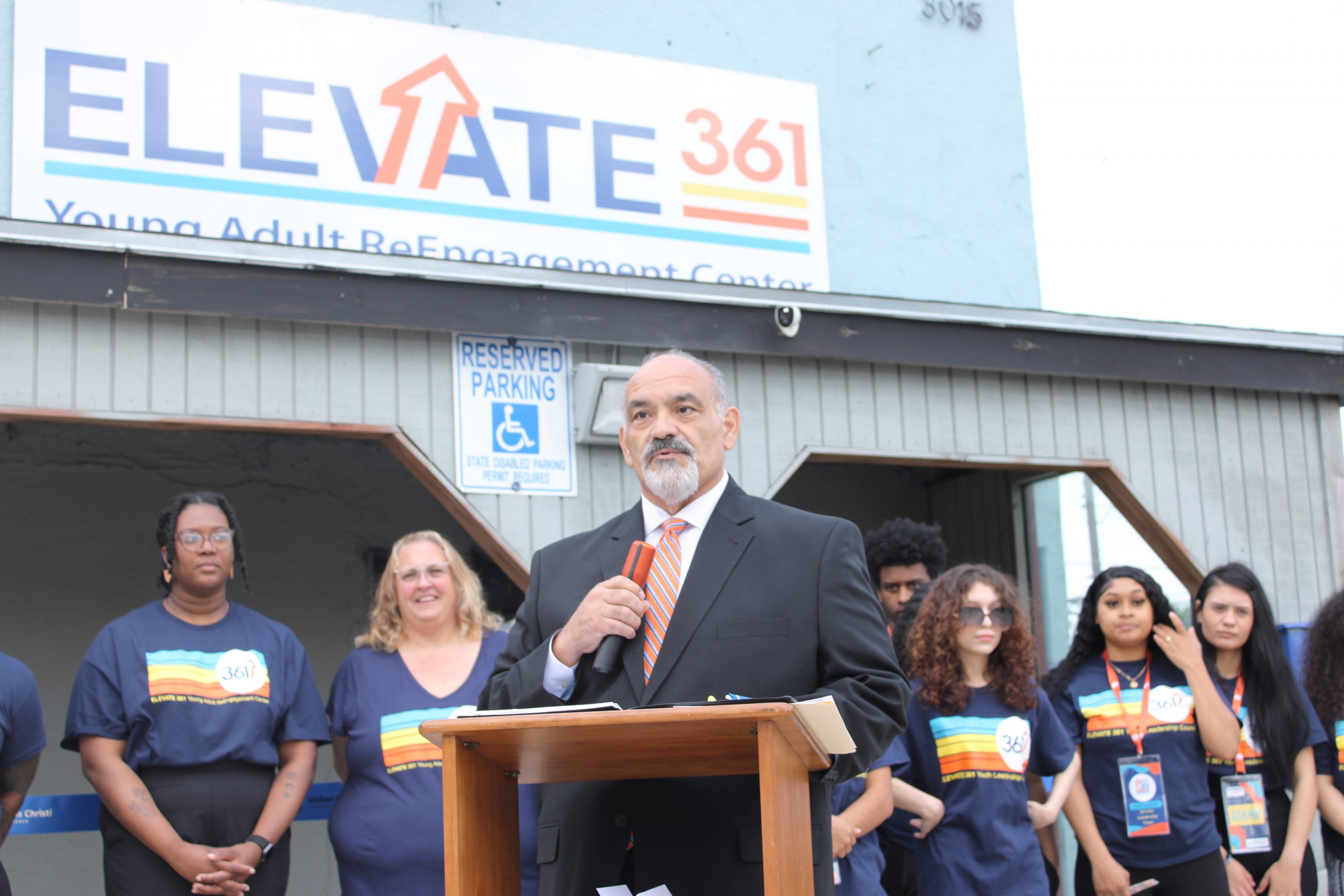Mia Estrada
Collegiate High School
“When I first told my parents I was pregnant, they were upset about it and some stuff happened so I cried for three days straight and didn’t go to school,” said Miranda Nava, 17, a junior at Collegiate High School.
As Nava would walk down the hall, she always noticed familiar faces staring at her. She felt shamed.
“When I started showing, everybody just stared and people would literally call me fat,” Nava said.
Along with schoolwork, Nava could hardly keep up with her courses.
“It’s hard to focus knowing my baby isn’t with me or after school when I do homework I attend to him first.”
With the years passing, the state of Texas has seen less sex education and more teen pregnancy.
High school students are receiving very little to no instructions on healthy decisions. According to the Texas Freedom Network, there has been an 83 percent increase in abstinence-only or no sexual education in Texas schools.
Texas ranked fifth highest in teen pregnancy in 2015, and teens 15-19 reached 41 births per 1,000 females. Texas has decreased since the report in 2011, when it had 63 births per 1,000 females.
Texas is still ranked fifth highest in teen pregnancy rates. Here in the Nueces County, the rating for teen pregnancy is 60.9 per 1,000 females.
A recent study by the Texas Freedom Network showed that a quarter of Texas schools no longer taught sex education in classrooms during the 2015-16 school year.
State law mandates schools to highlight abstinence, but the law ultimately leaves choice on how the school district uses its content instruction.
Corpus Christi ISD Board of Trustees President Janie Bell said CCISD is an abstinence-only district, promoting abstinence as opposed to safe sex.
“Abstinence-only programs educate kids about STDs. They talk about abstinence, but they also talk about unprotected sex. They tell both sides of the story,” Bell said.
However, with very few health classes in the district, students are receiving false information.
At Baker Middle School, a mother, Mariah Boone, raised a question about the inaccurate information her daughter was learning from a Heritage Keepers Abstinence Education workbook. Programs like Heritage Keepers can lead to unjust and shame of females who engage in sexual activity.
Dr. David Wiley, professor of health at Texas State University, said abstinence-only programs can lead to demonizing students.
“People who are not sexually active are portrayed as being morally superior to sexually active users,” Wiley said. “They make them feel that they’re dirty, they’re immoral, somehow unworthy of love because they’re somehow flawed human beings.
“Whereas kids who are abstinence are portrayed as being and are always the right type of person,” Willey said on the characterization of abstinence-only programs.
Felicity Gonzalez, a Collegiate High School student, feels that the abstinence programs do not help.
“They tell what it is under the law but leave out the LGBT in huge ways. It fails to mention it, period,” Gonzalez said. “It makes those who have sex feel ashamed, which is not how it should be.”
Students are easily shamed on numerous platforms. Nava received criticism and was labeled fat for being pregnant.
Though Nava underwent shaming, she encourages other students who are experiencing a similar situation to hers to continue on.
“Teen moms shouldn’t be ashamed of being pregnant because it’s a part of life,” Nava said. “If somebody has gotten pregnant whether it be planned or not it’s their choice and everybody should just accept it.”
Collegiate High School Principal Tracie Rodriguez considers the teaching of sex education to students to be important.
“I believe sex education should be a part of the curriculum,” Rodriguez said.
According to Rodriguez, she would consider an extracurricular club that informed students of health issues.
“A club that is inclusive of topics that are related as well as ensuring parents are informed of the topics,” she said.
Gonzalez, wants the administration to start teaching a sex education class for students.
“They can’t stop kids from having sex; might as well teach them to be safe,” Gonzalez said.




